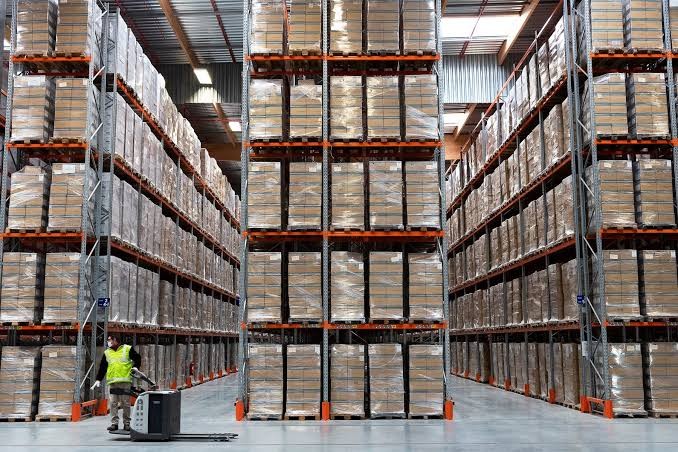COVID-19: How China produced ’70bn face masks’ in three months

On March 3, 2020, in the wake of the coronavirus pandemic, the World Health Organisation (WHO) expressed concern about how shortage of personal protective equipment (PPE), including masks, was affecting health workers across the world.
The organisation listed panic buying, rising demand, hoarding and misuse as part of the factors responsible for the non-availability of PPE, and called on governments and industries to endeavour to increase production capacity by 40 percent.
“Without secure supply chains, the risk to healthcare workers around the world is real. Industry and governments must act quickly to boost supply, ease export restrictions and put measures in place to stop speculation and hoarding. We can’t stop COVID-19 without protecting health workers first,” Tedros Ghebreyesus, director-general of the WHO, said.
In its projection, WHO estimated that 89 million masks needed to be produced on a monthly basis on order to meet global demand.
In line with the organisation’s request, China, where coronavirus originated late 2019, worked towards increasing production and in three months, the country exported over 70 billion masks to more than 200 countries and regions across the world.
A white paper published on June 7, 2020, by the state information office of the People’s Republic of China detailed, among other things, the medical intervention provided to foreign countries.
“From March 1 to May 31, China exported protective materials to 200 countries and regions, among which there were more than 70.6 billion masks, 340 million protective suits, 115 million pairs of goggles, 96,700 ventilators, 225 million test kits, and 40.29 million infrared thermometers,” it read.
In the bid to meet demand within and outside its shores, People’s Daily reported how ordinary citizens, a diaper production outfit, an apparel manufacturer, among others, had to work together to boost output, while operating from Fuzhou in East China’s Fujian Province.
However, boosting production came with difficulties, considering the barriers affecting the import of materials needed for the production of masks.
Speaking on the challenges, Zhan Wenfeng, a customs officer in Fuzhou, said “the import-oriented companies cannot import commodities now, the orders for export-oriented enterprises have been cancelled due to the pandemic.”
A report published in July 1 details how DaddyBaby, which specialises in maternal and infant products; E&D Group Corp, an apparel company, and Zhongjing Petrochemical contributed towards increasing China’s capacity to export masks.
While DaddyBaby and and E&D Group Corp converted their facilities to converting the raw materials into masks, Zhongjing Petrochemical specialised in the production of “melt-blown material, a key component for masks, to fill a supply shortage”.
In a four-minute video titled “Behind the Masks”, the companies and individuals shared their experiences on forming “a complete supply chain for making masks, despite encountering difficulties including resource and equipment shortages and tight deadlines”.
“At the beginning of the pandemic, raw materials and equipment were in dire shortage,” Lin Yanting, a manufacturer of maternal and infant products, said.
Speaking on the quality, Jiang Feng, an apparel manufacturer, said the face masks have gained CE certification, and as such, they can be sold in any European Union country.
“At present, there are many face masks exported from our port. The major destinations are South-East Asia, the US, Africa and European countries which are hard hit by the pandemic,” he added.
As of July 3, 2020, more than 11 million infectionshave been confirmed across the world, out of which over six million people have recovered, while more than 500,000 deaths have been recorded. (The Cable)

